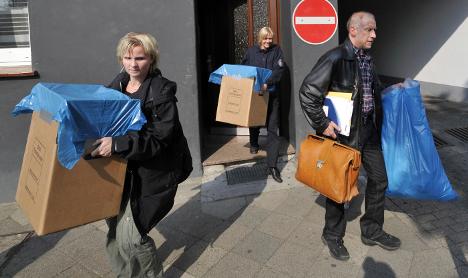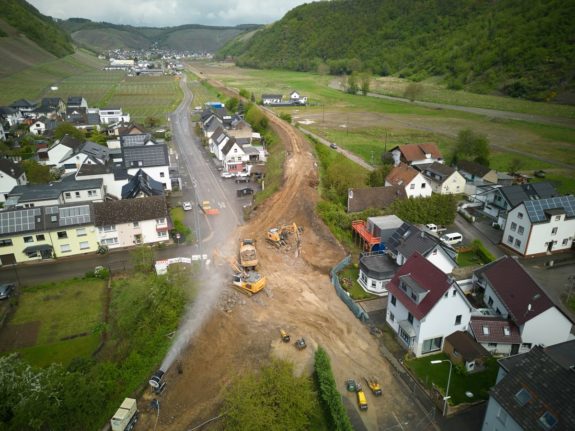Speaking at a press conference on Saturday morning, Rainer Griesbaum, deputy federal prosecutor, said although the group had been planning to set the bomb off in a big group of people, no specific target had been chosen.
They were, “still in the experimental phase,” he said.
Griesbaum said one of the three men arrested – named only as Abdeladim K. – had received the order to plan an attack in Germany from an important member of al-Qaida last year.
The 29-year-old from Morocco is said to have been in regular contact with the al-Qaida man, who is in the Afghan-Pakistan border region.
Griesbaum identified the other two men arrested as 31-year-old Jamil S., a German-Moroccan, and 19-year-old Amid C., a German-Iranian.
He said it would seem possible that they were considering attacking some big event in the Düsseldorf area, such as the Eurovision Song Contest, which is to be held there on May 14.
Jörg Ziercke, president of the Federal Office of Criminal Investigation (BKA), said the ringleader had been in Germany since last November – illegally – in order to prepare the attack.
He had connections to Austria, Morocco and Kosovo, said Ziercke.
Der Spiegel reported on Saturday that not only the German secret service but also the CIA and the Moroccan authorities had been involved in the three-month operation codenamed Komet, which resulted in Friday’s arrests.
The BKA had planted a Trojan virus on the computer of one of those arrested, enabling them to listen to his phone calls and watch his emails. The arrests were ordered after investigators heard the three men planning a test, shortly after having bought a variety of chemicals which could be used in a bomb.
DAPD/hc



 Please whitelist us to continue reading.
Please whitelist us to continue reading.
Member comments